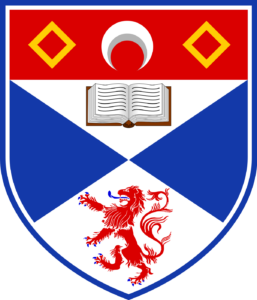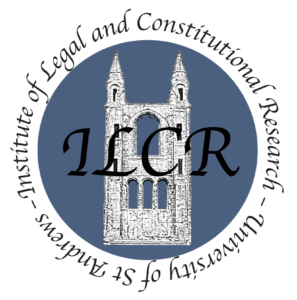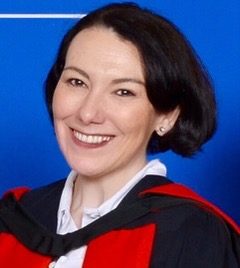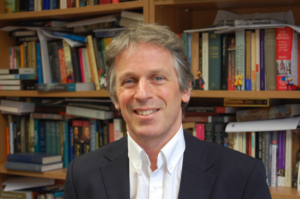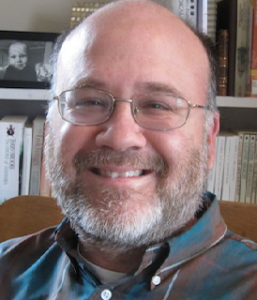Directors
Professor Caroline Humfress, School of History
Caroline Humfress is Professor in Mediaeval History at the University of St Andrews. Her research focuses on law and legal practice in relation to broader contexts of social, economic and cultural change. Her publications include the monograph Orthodoxy and the Courts in Late Antiquity (Oxford University Press) and the co-authored volume The Late Antique World (now in French translation). She has recently co-edited the volume Law and Empire: Ideas, Practices, Actors (Brill), in addition to writing numerous ‘introduction to the field’ essays for survey and companion volumes. In 2010 the international impact of her research was recognised with the award of a Philip Leverhulme Prize.
At Birkbeck, University of London, she co-founded the MA in the History of Ideas, for which she taught courses that stretched from the Roman period to the present day, with a particular emphasis on the history of religious and socio-legal thought and action. Before moving to Birkbeck in 2004, she taught history, law and rhetorical theory at UC Berkeley; she has also taught undergraduate and postgraduate courses at the Universities of Oxford and Cambridge.
Her research focuses on the cultural and intellectual context of ancient and mediaeval law and legal practice, exploring methodologies and approaches from the disciplines of legal anthropology, sociology and law. She is currently co-editing the Cambridge Comparative History of Ancient Law (with David Ibbetson of Cambridge University and Patrick Olivelle of the University of Austin at Texas): this project is the first of its kind in the field of Comparative Ancient Legal History, working with an international team of scholars specialising in the fields of Ancient Greek, Roman, Indo-European, Near-Eastern and Chinese Law. She is currently finishing a monograph for Oxford University Press: Multilegalism in Late Antiquity, based on her 2013 ‘Carlyle Lectures’ series at the University of Oxford.
She has taught a wide range of courses from archaic Greece to contemporary intellectual and political thought. In particular she has presented a number of Undergraduate and Postgraduate modules on the religious, cultural and political history of Late Antiquity and the early Middle ages, as well as on the history of ideas (Classical, Medieval and Modern).
Professor John Hudson, School of History
John Hudson joined the School of History at the beginning of October 1988. His research then concentrated on law and land-holding in twelfth-century England, and this subject has remained central to much of his subsequent work, leading up to his recent volume of The Oxford History of the Laws of England, 871-1216 (2012). Some of his legal history work plays with the applicability to mediaeval situations of ideas from modern legal theory; this work is furthered by his visiting association with the University of Michigan Law School, where he enjoys the title of L. Bates Global Professor of Law.
John has two other main areas of research interest. One is mediaeval historical writing, mostly in England – as in his two-volume edition of the History of the Church of Abingdon, an important twelfth-century monastic text – but also more widely, as in his contribution on ‘Local Histories’ in the Oxford History of Historical Writing. The other is nineteenth-century writing on the Middle Ages, and in particular the work of the greatest of legal historians, F. W. Maitland.
He has taught a wide range of courses both in and outside his main research areas. In particular he has presented a series of Honours modules about aristocratic culture, the latest mutation of which is called Courtroom Dramas: Law and Literature in Twelfth Century France.
Professor Anthony F. Lang, Jr, School of International Relations
Anthony F. Lang, Jr holds a Chair in International Political Theory in the School of International Relations at the University of St Andrews and was the founding Director of the Centre for Global Constitutionalism. He received his PhD in political science from Johns Hopkins University in 1996. He was an assistant professor of political science at the American University in Cairo, Egypt from 1996-2000. From 2000-2003, he served as a programme officer at the Carnegie Council for Ethics and International Affairs, where he directed programmes on ethics and the use of force, religion and US foreign policy, and ethics in higher education. He has served as president of the International Ethics section of the International Studies Association (2003-2004), programme chair of the Human Rights Section of ISA (2006-2008), and Chair of the International Ethics section Book Prize Committee (2009-2011). He is currently one of the co-editors of the journal, Global Constitutionalism, and serves on the editorial board of the Journal of International Political Theory, and Ethics & International Affairs. He is also commissioning editor of the new series, Global Ethics from Routledge Publishers.
His research focuses on the intersection of ethics, politics, and law at the global level. One stream of this research focuses on global constitutionalism, or how various aspects of the international political and legal order relate to the rule of law and an institutional balance of power. A second stream of research focuses on the responsibility of both individuals and states in the international legal and political order. A third stream focuses on constitutionalism in the Middle East, with particular attention to Egypt and the politics and law of the post-Arab Spring. A fourth stream of research focuses on the ethical and legal issues of the use of military force largely within the framework of the just war tradition.
